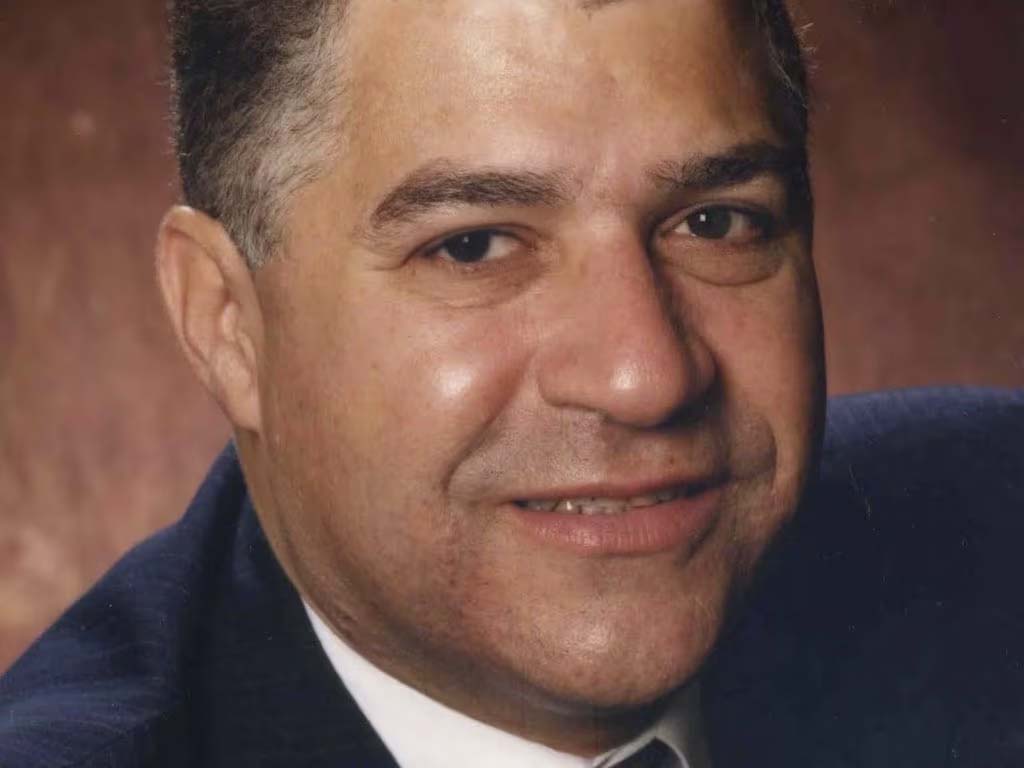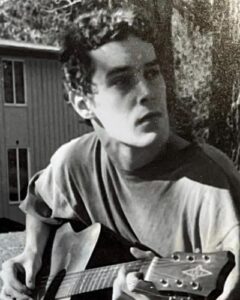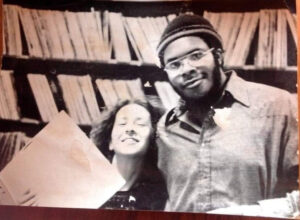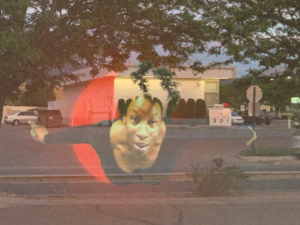 When The Writer was a student in the RUP Program at Goddard College, she got a part in Paul Zindel’s play, The Effect of Gamma Rays on Man-in-the-Moon Marigolds. It was her favorite play: she’d seen Eve Arden in it in Chicago at the old Ivanho Theatre, on a day when her mother “forgot” to wake us up for school and they skipped down to a matinee instead. She was in the prop room which was also the dressing room which was also “the wing, stage left,” when she noticed a bench built for Goddard alum David Mamet’s play, The Duck Variations. There was a cocktail table from Sexual Perversity in Chicago as well. They were just leaning up against a wall next to signs for the plays. Like many things at Goddard, (the Gamelan, for instance) they were history, still there, and out for anyone to use or to ponder. All she could think about was the fact that David Mamet’s career had begun right there, in the Haybarn, right where she was standing.
When The Writer was a student in the RUP Program at Goddard College, she got a part in Paul Zindel’s play, The Effect of Gamma Rays on Man-in-the-Moon Marigolds. It was her favorite play: she’d seen Eve Arden in it in Chicago at the old Ivanho Theatre, on a day when her mother “forgot” to wake us up for school and they skipped down to a matinee instead. She was in the prop room which was also the dressing room which was also “the wing, stage left,” when she noticed a bench built for Goddard alum David Mamet’s play, The Duck Variations. There was a cocktail table from Sexual Perversity in Chicago as well. They were just leaning up against a wall next to signs for the plays. Like many things at Goddard, (the Gamelan, for instance) they were history, still there, and out for anyone to use or to ponder. All she could think about was the fact that David Mamet’s career had begun right there, in the Haybarn, right where she was standing.
Here is an excerpt from John Lahr’s interview with David Mamet, published in The Paris Review:
“In 1964 he went off to Goddard College in Plainfield, Vermont, where he was graduated with “no skills, nor demonstrable talents.” Over the next several years he pursued a series of odd jobs, including a stint in the merchant marines. With the expectation of becoming an actor, he joined a theater company at McGill University, before returning to Vermont for an instructor’s position at Marlboro College.
His first play was staged in 1970, almost by accident. He had won the job at Marlboro by advertising himself as the author of a play, though in fact there was nothing to which he could truthfully lay claim. Upon his arrival he learned that his “play” was scheduled to be performed, so he hastily set about writing Lakeboat, a one-act drama taken from his experiences in the merchant marines. Lakeboat was staged before the year ended; it would set the tone for his later work and eventually become a full-length feature, one that is still performed today.
He spent only one year at Marlboro before returning to Chicago, where he worked variously as a waiter, a cabdriver and a real-estate salesman. The following autumn, having abandoned acting, he went back to Goddard, which had offered to make him its artist-in-residence. There he formed an ensemble, the St. Nicholas Theater Company, which performed the plays he had written since Lakeboat. In 1973 he moved back to Chicago, bringing with him a batch of new plays and the means to have them performed…
INTERVIEWER
One of the things that interests me is how uncompromising you are, both with yourself and the audience. The Cryptogram, for example, forces the audience to solve this puzzle that also happens to be troubling the kid in the play. You, as the author, have put the audience and the kid in essentially the same place.
MAMET
Well, that, to me, is always the trick of dramaturgy; theoretically, perfectly, what one wants to do is put the protagonist and the audience in exactly the same position. The main question in drama, the way I was taught, is always what does the protagonist want. That’s what drama is. It comes down to that. It’s not about theme, it’s not about ideas, it’s not about setting, but what the protagonist wants. What gives rise to the drama, what is the precipitating event, and how, at the end of the play, do we see that event culminated? Do we see the protagonist’s wishes fulfilled or absolutely frustrated? That’s the structure of drama. You break it down into three acts.
INTERVIEWER
Does this explain why your plays have so little exposition?
MAMET
Yes. People only speak to get something. If I say, Let me tell you a few things about myself, already your defenses go up; you go, Look, I wonder what he wants from me, because no one ever speaks except to obtain an objective. That’s the only reason anyone ever opens their mouth, onstage or offstage. They may use a language that seems revealing, but if so, it’s just coincidence, because what they’re trying to do is accomplish an objective. Well, well, if it isn’t my younger brother just returned from Australia . . . have a good break? The question is where does the dramatist have to lead you? Answer: the place where he or she thinks the audience needs to be led. But what does the character think? Does the character need to convey that information? If the answer is no, then you’d better cut it out, because you aren’t putting the audience in the same position with the protagonist. You’re saying, in effect, Let’s stop the play. That’s what the narration is doing—stopping the play.
Now, there’s a certain amount of essential information, without which the play does not make sense . . .
INTERVIEWER
And how do you fit that information in?
MAMET
As obliquely as possible. You want to give the people information before they know it’s been given to them.
INTERVIEWER
So to you a character is . . .
MAMET
It’s action, as Aristotle said. That’s all that it is—exactly what the person does. It’s not what they “think,” because we don’t know what they think. It’s not what they say. It’s what they do, what they’re physically trying to accomplish on the stage. Which is exactly the same way we understand a person’s character in life—not by what they say, but by what they do. Say someone came up to you and said, I’m glad to be your neighbor because I’m a very honest man. That’s my character. I’m honest, I like to do things, I’m forthright, I like to be clear about everything, I like to be concise. Well, you really don’t know anything about that guy’s character. Or the person is onstage, and the playwright has him or her make those same claims in several subtle or not-so-subtle ways, the audience will say, Oh yes, I understand their character now; now I understand that they are a character. But in fact you don’t understand anything. You just understand that they’re jabbering to try to convince you of something…”
http://www.theparisreview.org/interviews/1280/the-art-of-theater-no-11-david-mamet







